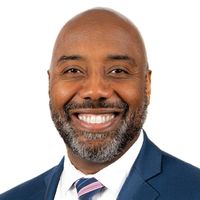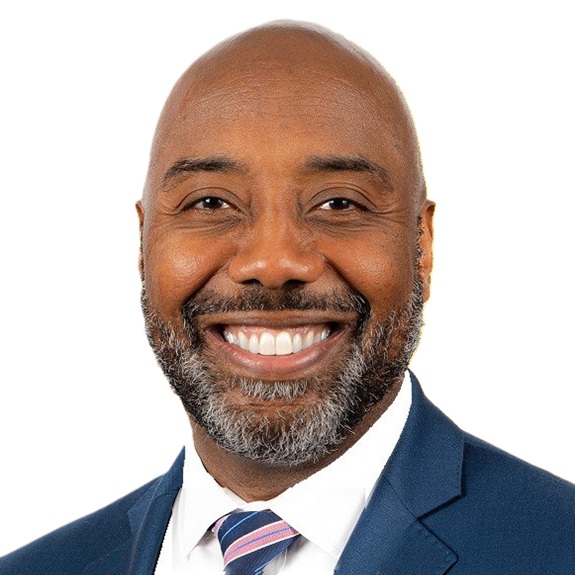What to Do When You Have More Retirement Income Than You Need
These three options can help you allocate extra income in ways that don’t push you into a higher tax bracket or trigger extra taxes.


Profit and prosper with the best of Kiplinger's advice on investing, taxes, retirement, personal finance and much more. Delivered daily. Enter your email in the box and click Sign Me Up.
You are now subscribed
Your newsletter sign-up was successful
Want to add more newsletters?

Delivered daily
Kiplinger Today
Profit and prosper with the best of Kiplinger's advice on investing, taxes, retirement, personal finance and much more delivered daily. Smart money moves start here.

Sent five days a week
Kiplinger A Step Ahead
Get practical help to make better financial decisions in your everyday life, from spending to savings on top deals.

Delivered daily
Kiplinger Closing Bell
Get today's biggest financial and investing headlines delivered to your inbox every day the U.S. stock market is open.

Sent twice a week
Kiplinger Adviser Intel
Financial pros across the country share best practices and fresh tactics to preserve and grow your wealth.

Delivered weekly
Kiplinger Tax Tips
Trim your federal and state tax bills with practical tax-planning and tax-cutting strategies.

Sent twice a week
Kiplinger Retirement Tips
Your twice-a-week guide to planning and enjoying a financially secure and richly rewarding retirement

Sent bimonthly.
Kiplinger Adviser Angle
Insights for advisers, wealth managers and other financial professionals.

Sent twice a week
Kiplinger Investing Weekly
Your twice-a-week roundup of promising stocks, funds, companies and industries you should consider, ones you should avoid, and why.

Sent weekly for six weeks
Kiplinger Invest for Retirement
Your step-by-step six-part series on how to invest for retirement, from devising a successful strategy to exactly which investments to choose.
With the S&P 500 hitting a record high in January, account balances have also reached new highs — and while that may mean a bigger nest egg for some, it could lead to higher taxes and surcharges for older retirees required to withdraw from pre-tax retirement accounts every month.
These withdrawal requirements, called required minimum distributions (RMDs), mean that rising account balances lead to larger withdrawals and, in turn, greater taxable income. This can push people over the age of 72 into a higher income tax bracket or trigger the net investment income tax of 3.8% on returns from interest, dividends and capital gains. Such thresholds can come as an unwelcome surprise — especially for retirees who have more income than they need.
If this sounds like you, there is good news. Working with your own qualified tax professional, here are some ways to consider for allocating the extra income, including strategies that allow you to leave money to loved ones or causes that matter most to you.
From just $107.88 $24.99 for Kiplinger Personal Finance
Become a smarter, better informed investor. Subscribe from just $107.88 $24.99, plus get up to 4 Special Issues

Sign up for Kiplinger’s Free Newsletters
Profit and prosper with the best of expert advice on investing, taxes, retirement, personal finance and more - straight to your e-mail.
Profit and prosper with the best of expert advice - straight to your e-mail.
Options to consider:
1. Make qualified charitable donations (QCDs).
With the passage of the federal SECURE 2.0 Act of 2022, individuals over the age of 70½ are eligible to transfer up to $105,000 from an individual retirement account (IRA) to a charity tax-free each year. Referred to as qualified charitable distributions (QCDs), these donations can be leveraged to avoid paying taxes on extra personal income. Eligible charitable organizations, typically 501(c)(3) organizations, also receive tax breaks on QCDs.
Still, you should be mindful of timing in light of the “first-dollars-out rule,” which states that the first dollars withdrawn from an IRA in any year are deemed to satisfy the RMD. Consider taking QCDs at the beginning of the year — before any RMD income is withdrawn — to offset taxable income. Unfortunately, RMD income can’t be offset by a QCD done later in the year.
This option can be suited for those who truly don’t need additional income and are already accustomed to making charitable contributions every year, especially since QCDs are irreversible once they’ve been transferred.
But the returns from QCDs extend beyond financial gains; philanthropic endeavors can advance the causes you care most about, help others in need and set a positive example for your children and grandchildren.
2. Convert pre-tax retirement accounts to Roth IRAs.
If you have retirement accounts with pre-tax contributions that are subject to income tax upon distribution — 401(k)s, traditional IRAs, 403(b)s and other similar plans — you might consider converting them to Roth IRAs, which offer after-tax contributions and qualified tax-free distributions. By doing so, you create an asset that is no longer subject to taxation under RMD requirements.
If appropriate for your individual set of circumstances, there are other benefits from taking this route. For one, all of the growth you see after a Roth conversion is truly yours — meaning you’ll spend less time trying to plan out withdrawals based on current tax policy. And you gain full control over the timing and amount of your own distributions.
The downsides? Well, for any Roth conversion, you’ll have to pay taxes upfront, which can leave you with thousands of dollars less. However, this move can be worth it in the long run.
Keep in mind that it’s important to consult and work closely with your qualified tax professional in determining and carrying out any course of action.
3. Use a life insurance policy to build intergenerational wealth.
If you’re in your 70s, now may be a good time to create as much opportunity for your grandchildren as possible. One way to do that is to take out a life insurance policy on your children that pays out a death a benefit to their children (your grandchildren).
You can start by setting up a trust that serves as the owner and beneficiary of the policy. That trust could then require that certain sums of money be used for specific purposes, such as college tuition or living expenses.
One advantage to considering a permanent life insurance policy is the potential for you to build leverage over time. Since a permanent life insurance strategy oriented around the death benefit hinges on the age and health of those being insured, it’s important to work with an insurance-licensed financial professional in seeking a suitable permanent life insurance policy.
Once a life insurance policy has been established, you won’t be able to withdraw from it like a bank account. So, before you divert your excess income to a life insurance policy, consider whether you may need that money later in life.
Your financial runway should match your needs
It’s easy to see the downsides of outliving your retirement income. But rarely do we expect our money to outlive us — which is what could happen if you save more money than you end up spending.
If you are unsure where you stand at the top of this year, take the time to assess your situation and consider working with financial and tax professionals to see if your nest egg is more than you may need. These strategies can guide you in putting extra funds toward planning your legacy.
This article, which has been obtained from an outside source and is provided as a courtesy by Stephen B. Dunbar III, JD, CLU, Executive Vice President of the Georgia Alabama Gulf Coast Branch of Equitable Advisors, LLC, does not offer or constitute, and should not be relied upon, as financial, investment, tax, legal advice. Your unique needs, goals and circumstances require the individualized attention of your own tax, legal, and financial professionals whose advice and services will prevail over any information provided in this article. Equitable Advisors, LLC and its affiliates do not provide tax or legal advice or services, nor do they endorse, approve, or make any representations as to the accuracy, completeness, or appropriateness of any part of any content linked to from this article. It is not possible to invest directly in an index. Stephen B. Dunbar III offers securities through Equitable Advisors, LLC (NY, NY 212-314-4600), member FINRA, SIPC (Equitable Financial Advisors in MI & TN) and offers annuity and insurance products through Equitable Network, LLC. Financial Professionals may transact business and/or respond to inquiries only in state(s) in which they are properly qualified. GE-6363158.1(02/24)(exp.02/26)
Related Content
- Five Financial To-Dos to Help You Stay on Track in 2024
- Financial Fasting Can Trim the Fat From Your Spending
- Are You Ready to ‘Rothify’ Your Retirement?
- RMDs Deadline Is Coming: What if You Don’t Need the Money?
- The Five Stages of Retirement (and How to Skip Three of Them)
Profit and prosper with the best of Kiplinger's advice on investing, taxes, retirement, personal finance and much more. Delivered daily. Enter your email in the box and click Sign Me Up.

Stephen Dunbar, Executive Vice President of Equitable Advisors’ Georgia, Alabama, Gulf Coast Branch, has built a thriving financial services practice where he empowers others to make informed financial decisions and take charge of their future. Dunbar oversees a territory that includes Georgia, Alabama and Florida. He is also committed to the growth and success of more than 70 financial advisers. He is passionate about helping people align their finances with their values, improve financial decision-making and decrease financial stress to build the legacy they want for future generations.
-
 The New Reality for Entertainment
The New Reality for EntertainmentThe Kiplinger Letter The entertainment industry is shifting as movie and TV companies face fierce competition, fight for attention and cope with artificial intelligence.
-
 Stocks Sink With Alphabet, Bitcoin: Stock Market Today
Stocks Sink With Alphabet, Bitcoin: Stock Market TodayA dismal round of jobs data did little to lift sentiment on Thursday.
-
 Betting on Super Bowl 2026? New IRS Tax Changes Could Cost You
Betting on Super Bowl 2026? New IRS Tax Changes Could Cost YouTaxable Income When Super Bowl LX hype fades, some fans may be surprised to learn that sports betting tax rules have shifted.
-
 The 4 Estate Planning Documents Every High-Net-Worth Family Needs (Not Just a Will)
The 4 Estate Planning Documents Every High-Net-Worth Family Needs (Not Just a Will)The key to successful estate planning for HNW families isn't just drafting these four documents, but ensuring they're current and immediately accessible.
-
 Love and Legacy: What Couples Rarely Talk About (But Should)
Love and Legacy: What Couples Rarely Talk About (But Should)Couples who talk openly about finances, including estate planning, are more likely to head into retirement joyfully. How can you get the conversation going?
-
 How to Get the Fair Value for Your Shares When You Are in the Minority Vote on a Sale of Substantially All Corporate Assets
How to Get the Fair Value for Your Shares When You Are in the Minority Vote on a Sale of Substantially All Corporate AssetsWhen a sale of substantially all corporate assets is approved by majority vote, shareholders on the losing side of the vote should understand their rights.
-
 How to Add a Pet Trust to Your Estate Plan: Don't Leave Your Best Friend to Chance
How to Add a Pet Trust to Your Estate Plan: Don't Leave Your Best Friend to ChanceAdding a pet trust to your estate plan can ensure your pets are properly looked after when you're no longer able to care for them. This is how to go about it.
-
 Want to Avoid Leaving Chaos in Your Wake? Don't Leave Behind an Outdated Estate Plan
Want to Avoid Leaving Chaos in Your Wake? Don't Leave Behind an Outdated Estate PlanAn outdated or incomplete estate plan could cause confusion for those handling your affairs at a difficult time. This guide highlights what to update and when.
-
 I'm a Financial Adviser: This Is Why I Became an Advocate for Fee-Only Financial Advice
I'm a Financial Adviser: This Is Why I Became an Advocate for Fee-Only Financial AdviceCan financial advisers who earn commissions on product sales give clients the best advice? For one professional, changing track was the clear choice.
-
 I Met With 100-Plus Advisers to Develop This Road Map for Adopting AI
I Met With 100-Plus Advisers to Develop This Road Map for Adopting AIFor financial advisers eager to embrace AI but unsure where to start, this road map will help you integrate the right tools and safeguards into your work.
-
 The Referral Revolution: How to Grow Your Business With Trust
The Referral Revolution: How to Grow Your Business With TrustYou can attract ideal clients by focusing on value and leveraging your current relationships to create a referral-based practice.